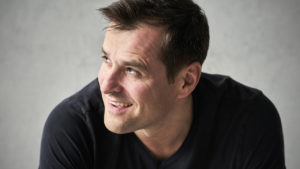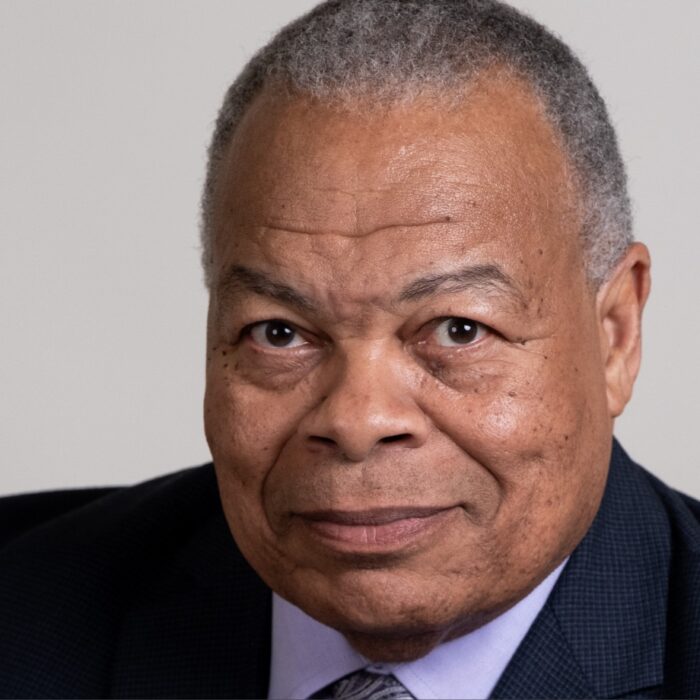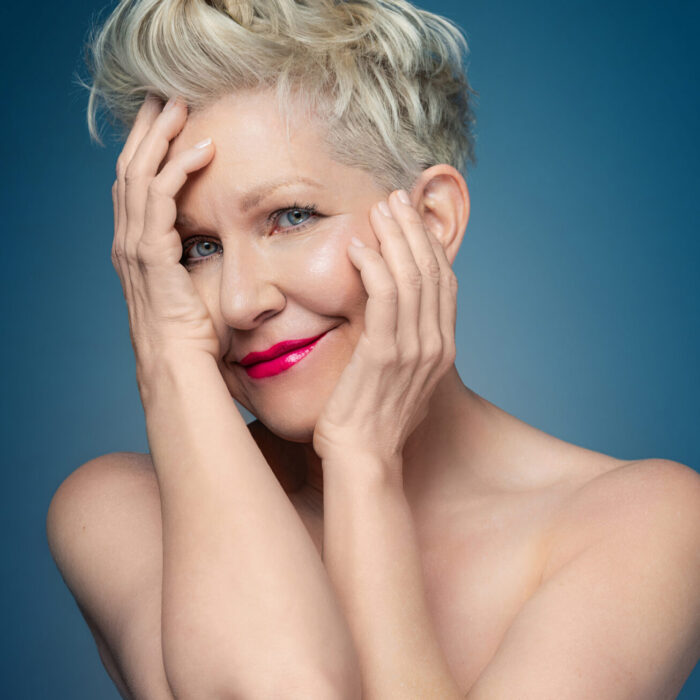
Without Making Compromises – Baritone Holger Falk on Empty Space as a Key-Driver of the Artistic Self-Development
By Polina Lyapustina(Photo: Kaupo Kikkas)
The recent performance of “Eight Songs for a Mad King” from Bayerische Staatsoper provoked so many thoughts in my head. It questioned the humanity and sanity in our world. It reflected modern times so vividly. It struck with the intensity of a live performance, so I could not take my eyes away.
The evening teased the discoveries that come when you find a source of incredible knowledge. When I see an artist who can represent all aspects of madness with his body language and also easily sing across several octaves to the heights of coloraturas, I know that person has to know a secret.
Throughout his career, German baritone Holger Falk challenged his vocal and acting abilities across various fields — from early music, through romanticism, to the 20th century, ending with the modern music theatre of today. And finally, he made a choice that now completely defines him as an artist.
“About 12 years ago, I discovered that I could express myself fully and with no limits in the music of today rather than in form-driven operas of the past. So I have just chosen that. But I also had an established career as a lieder singer. I love this repertory, with its emotions and dramatism. So with this special intimacy of lieder on one side and amazing expressiveness of music theatre on the other, I got a perfect combination through which I could express everything I got and wanted to share without making too many compromises,” Falk told OperaWire in a recent interview.
Lieder brought Falk together with numerous musicians and composers and laid the foundation for their joint projects in the fields of modern music.
“I find it a real honor when a composer writes for you. When people know your voice, know you as an actor and singer, and write for you, it is a great honor. You take part in the development of music history. And that’s one of my goals — to be a part of the transformation of the music theatre.
“And it comes organically, without planning. Composers who want to work with me like Péter Eötvös or Michael Wertmüller, just come with their ideas. But it also could be vice versa — I may have an idea that a piece needs to become an opera. And then we discuss and change it. It’s a group effort, and I never consider myself as just a receiver of work.”
The artist with his own vision still needs to get ideas and energy from somewhere, and this remains a question for many creatives today.
Falk noted: “All you need is to be open to coincidence and allow it to happen…” The freedom from necessity seemed to become the basis of Falk’s artistry. “Once I’ve managed to overcome the fear of empty space, which I had many times in my career, I found that it was actually the time when the best things happened. It’s literally like that — if your calendar is full for six years ahead, where is space for the miracles to arrive?
Artistry Empowering the Voice
Falk does not accept one-sidedness and restrictions both in his work and in his favorite genres in general.
“Totally inspired by theatre, I find the pure aesthetic approach to operatic singing very limited. Vocal abilities are just one part of who we are as artists. Unfortunately, some singers don’t even consider themselves to be artists, but rather like a wheel in machinery that functions. But I’m sure that we are much more. As creative artists, we can be the source of something new.”
That’s true, but talking about developing artistry seems very easy for a person who grew his vocal abilities to such an extent, and while my interlocutor continued to speak, I noted this question for later.
“And you could see it in ‘Eight Songs…’ (which is again not so fresh! It’s 50-years-old!), a piece where your extreme voice and your body language become one. And you might want to ask if I can just easily produce such sound [over 4 octaves]?”
I started to wonder if this question was written on my face?
Falk answered with a confident smile: “This sound is based on how I perceive and feel this role with my whole being, and if this being is integrated and recreated, the sound appears. But if you do singing like an acrobat — disconnected — it’s way harder and definitely less convincing. Stunning and unexpected things are coming from a deep inner source of creation. And this is a truly artistic source.”
It took time for the singer to develop this unity inside and to empower his voice by it.
“I sang this piece for the first time 14 years ago, when I just started to develop the high register of my voice. Only recently I discovered, that I can use these very thin lines of my cords, which actually bring me into the Queen of the Night space. Before, I normally used my alto register, but for ‘Eight Songs…’ you need to go octaves higher.”
Roy Hart, for whom it was written, had an incredible range. And many artists today sing it lower; once upon a time, so did Falk. But not anymore.
“This time, I knew I could use my instrument to sing this piece as it was written. And when it worked out, it also gave me a new ground for building a character through the unnatural sound.
“And this is the treasure of modern art: we don’t have to always sing beautifully. We can explore all kinds of sounds. All kinds of human brokenness, human extremism, and when we consider ourselves as artists it drives us to explore those emotions. They are our new continents. And that’s what I love in young singers and try to convey to my students — they won’t be just these sound machines.”
Supporting Young Minds
“The problem of singer’s education is that for 80-90 percent of the time, students are occupied by training of sound qualities,” Falk professed. “But I’m positive that singers should receive proper education in acting, similar to what actors do. And after all, they’d have another bigger goal — to bring their qualities together. To put your acting on the rhythm which is already given by music, so you don’t have the freedom that actors have. That is why I guess education can and should be an early basis for this. And I’m happy that this is becoming the case now.”
In the last few years, Falk has combined his performing activities with a professorship at the University of Music and Performing Arts Graz, the oldest music university in Austria.
“In Graz, I just established my master’s program which is called ‘Performance practice in contemporary music.’ I started as a professor of Lied and Oratory, and I was asked to create my master’s program PPCM because they already had a similar one for the instrumentalists. They provide a stunning education for musicians, and now we have this possibility for singers too.
“So I give half of my time to contemporary music and half to Lied. We started in October, with four master’s students. And it’s an open space that we can create or fill together. We set our interaction very openly, discussing everything. ‘What would you be interested in? Performing? Mixing electronic music with a voice? Concert repertory? Theatre on the opera stage?’ For now, it’s quite unique, a similar program for 20th-century music exists in Stuttgart with Prof. Angelika Luz. But I hope that with time all the conservatories will accept the vocal music of today into their programs.
“Modern art is not that easy to get, but today it speaks directly to our humanity. I believe the future of opera is in the performance. When we start to produce good performances for contemporary operas, we will also get better compositions because composers want to be performed brilliantly. Then the public will get and accept new pieces easier. And this will push singers to bring this certain (not only vocal) quality on stage — and so the circle will be closed. And this is the circle I wish we could create together.”
The Word of Guidance
Falk’s path is diverse and truly inspiring. Playing by his own rules, he combines teaching, performing, and recording to let modern musical theatre grow and develop. But he definitely needs other musicians to follow the idea. For many, it will mean to find their own daring way into the modern opera world.
“I started to be a singer like everyone else, studying the old works. But what made me the singer I am now is that empty space that always provoked me to move forward, to explore, and to change. So I would ask every young singer not to spend all your free time on the auditions trying to get hired, but to ask yourself what are you really thrilled about and what you can contribute to the world. And then to make it. It is the path I always took and the one that brought all the best things to my life,” Falk stated. “My first two CDs I produced myself, using my passion as a creative source. Only later I got a contract and used it to develop my passion further. All I wanted was to use this emptiness as a possibility to do what I want, being not dependent on somebody at all. Just start to see yourself as a big creative source.”
And it seems like this man’s words are never at odds with his deeds. The pandemic surely affected his plans too, and yet, today Falk uses this empty space for developing his and others’ ideas in his favorite fields.
He continues working with his students in Graz and supports other initiatives of young professionals. The baritone is set for a new production of Kaija Saariaho’s “L’Amour de Loin” in Cologne this autumn and the world premiere of “Captain Nemo’s Library” by Johannes Kalitzke next spring.
Meanwhile, he returns to the recording studio to shape his new idea — the retrospective of the group “Les Six,” which he’s previously started with his recordings of Francis Poulenc.


